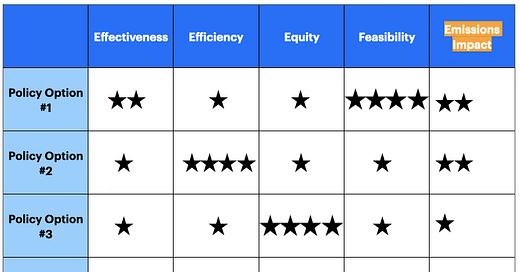India Policy Watch: Countering Wokeism
Insights on burning policy issues in India
— RSJ
You know a term has entered the zeitgeist when it reaches your family WhatsApp group that’s kept alive by aunts and uncles forwarding every dubious message that confirms their biases. So, when I received a message on the group that urged us to celebrate this Diwali with firecrackers to show the ‘wokes’ their place, I realised the word has crossed some kind of a threshold. And then I noticed social media was full of similar assertion of Sanatan Dharma against wokes (and Christians too). Some kind of international conspiracy of the wokes had to be thwarted, our religion and tradition had to be reclaimed and, apparently, lighting a firecracker was the place to start. Another day, another assault on our dharma and another lightening response by us because we are ever vigilant now.
And that set me thinking about wokeism. Is it a nihilistic, virtue signaling, leftist movement that imagines victimhood, rejects tradition and reduces everything to identity? Or, is it an easy catch-all pejorative that serves as a convenient fig leaf for bigots of every shade to run down any progressive, liberal idea without engaging with their merit? Are all anti-woke responses the same? Or, is there a right and a wrong cause to protest wokeism?
Blooming Of The Conservative Mind
I thought it will be useful to go back to the original text that questioned ‘openness’ and relativism to search for answers. Allan Bloom’s Closing of the American Mind (1987) was the earliest and remains perhaps the most intellectually stimulating challenge to the dogma of liberalism that had take over the academic and media bastions in America. Bloom, a professor of Philosophy at University of Chicago, wrote the book based on the ‘sample’ of students he taught over a couple of decades starting from the 60s. Bloom took a counterintuitive view to the liberal consensus that keeping an open mind that’s free of prejudice is the way for a society to progress. He countered:
“Prejudices, strong prejudices, are visions about the way things are. They are divinations of the order of the whole of things, and hence the road to a knowledge of that whole is by way of erroneous opinions about it. Error is indeed our enemy, but it alone points to the truth and therefore deserves our respectful treatment. The mind that has no prejudices at the outset is empty. It can only have been constituted by a method that is unaware of how difficult it is to recognize that a prejudice is a prejudice.”
While woke as a term and cultural phenomenon was still a few decades away, Bloom had anticipated its origin and its pathologies quite accurately. For Bloom, the moral goal of every education system and, therefore, of the society, was to produce a human being who is in accord with its fundamental principle. As he wrote:
“Aristocracies want gentlemen, oligarchies men who respect and pursue money, and democracies lovers of equality. Democratic education, whether it admits it or not, wants and needs to produce men and women who have the tastes, knowledge, and character supportive of a democratic regime.”
So, what did this mean for the US? For Bloom, the moral imperative of a US citizen was quite clear:
“Above all he was to know the rights doctrine; the Constitution, which embodied it; and American history, which presented and celebrated the founding of a nation conceived in liberty and dedicated to the proposition that all men are created equal."
“A powerful attachment to the letter and the spirit of the Declaration of Independence gently conveyed, appealing to each man's reason, was the goal of the education of democratic man.”
This starting position is important to appreciate when anyone is looking to imitate or transplant anti-woke rhetoric into their societies. If you live in a democracy and value its moral principles, your argument against the liberal project will have to be founded on this truth.
The Three Moves
From this starting position, Bloom makes three key moves in his dissection of where liberalism or wokeism, as we might call it today, loses its way.
First, he argues that allegiance to the natural rights of man should supersede all other allegiances or identities. The folksy way of saying this is you should do no favour to your first cousin that you will deny a fellow citizen. In his scepticism of what is called progressive thought, Bloom didn’t hark back to an ancient way of life or a religious code. Instead, he stuck to the first principles of liberty:
“This called for something very different from the kinds of attachment required for traditional communities where myth and passion as well as severe discipline, authority, and the extended family produced an instinctive, unqualified, even fanatic patriotism, unlike the reflected, rational, calm, even self-interested loyalty—not so much to the country but to the form of government and its rational principles—required in the United States.”
“The palpable difference between these two can easily be found in the changed understanding of what it means to be an American. The old view was that, by recognizing and accepting man's natural rights, men found a fundamental basis of unity and sameness. Class, race, religion, national origin or culture all disappear or become dim when bathed in the light of natural rights, which give men common interests and make them truly brothers. The immigrant had to put behind him the claims of the Old World in favor of a new and easily acquired education. This did not necessarily mean abandoning old daily habits or religions, but it did mean subordinating them to new principles. There was a tendency, if not a necessity, to homogenize nature itself.”
So far, so good. The liberals would grudgingly and partially agree to this too. It is the second move of Bloom, both dazzlingly insightful and contentious, that made the book a bestseller and launched a vigorous conservative intellectual movement against what passed as liberalism in the late 20th century. Bloom made a strong case against openness and relativism, two notions dear to the liberal hearts. What’s the basis for deeming these as lofty ideals? The pursuit of being open to every thought and ideology without rigorously questioning it. Or, the belief that every culture and its way of life hold virtues that might be different from ours but are virtues nevertheless. Bloom eviscerated the liberal platform that dominated (and still dominates) the US academic and intellectual environs.
On openness, Bloom wrote:
“Thus there are two kinds of openness, the openness of indifference —promoted with the twin purposes of humbling our intellectual pride and letting us be whatever we want to be, just as long as we don't want to be knowers—and the openness that invites us to the quest for knowledge and certitude, for which history and the various cultures provide a brilliant array of examples for examination. This second kind of openness encourages the desire that animates and makes interesting every serious student—"I want to know what is good for me, what will make me happy" —while the former stunts that desire.
Openness, as currently conceived, is a way of making surrender to whatever is most powerful, or worship of vulgar success, look principled.”
Then Bloom laid into cultural relativism:
“Men cannot remain content with what is given to them by their culture if they are to be fully human. This is what Plato meant to show by the image of the cave in the Republic and by representing us as prisoners in it. A culture is a cave. He did not suggest going around to other cultures as a solution to the limitations of the cave. Nature should be the standard by which we judge our own lives and the lives of peoples. That is why philosophy, not history or anthropology, is the most important human, science.”
And his bold claim that there is reason to believe in superiority of Western culture because it is moored in the natural rights of man and on the primacy of reason.
“Cultural relativism succeeds in destroying the West's universal or intellectually imperialistic claims, leaving it to be just another culture. So there is equality in the republic of cultures. Unfortunately the West is defined by its need for justification of its ways or values, by its need for discovery of nature, by its need for philosophy and science. This is its cultural imperative. Deprived of that, it will collapse.”
This second move of Bloom is interesting when viewed from an Indian conservative perspective. Let’s consider democracy and its central premise of equality are moral imperatives that are subscribed to by the conservatives. Then when they make a case against woke or liberal ideas, what’s their alternative moral position? That which is rooted in principles of natural rights like it is laid out in our constitution? If it is this, then they have Bloom on their side. Or, is it some principles strewn across multiple ancient texts of the Sanatan Dharma? If it is this, then they will have to prove how these principles will hold good in a modern democracy. Because this was the exact debate on the Hindu Code Bill right after independence. That was an attempt to reconcile the long-running practices of Hinduism to the democratic code we had adapted. It wasn’t easy because, on multiple issues, no reconciliation was possible. The past had to be reformed.
I suspect the alternative that most anti-woke voices in India will stand for today will be this harking back to some mythical past where social order was “equal” only in some kind of a twisted way that would justify caste and gender discrimination. This is a subversion of true conservatism as Bloom would point out.
The third move of Bloom in his book was how he makes a case for majoritarianism as a virtue. Again, this is interesting from an Indian conservative perspective. For Bloom, liberal democracy was designed in a way where minority interests that are often driven by passion, prejudice or spite cancel each other out for the rational and temperate instincts of the majority to thrive. Pandering to factions and minorities while blaming the majority was antithetical to the democratic project. Here’s Bloom:
“Much of the intellectual machinery of twentieth-century American political thought and social science was constructed for the purposes of making an assault on that majority. It treated the founding principles as impediments and tried to overcome the other strand of our political heritage, majoritarianism, in favor of a nation of minorities and groups each following its own beliefs and inclinations. In particular, the intellectual minority expected to enhance its status, presenting itself as the defender and spokesman of all the others.
This reversal of the founding intention with respect to minorities is most striking. For the Founders, minorities are in general bad things, mostly identical to factions, selfish groups who have no concern as such for the common good. Unlike older political thinkers, they entertained no hopes of suppressing factions and educating a united or homogeneous citizenry. Instead they constructed an elaborate machinery to contain factions in such a way that they would cancel one another and allow for the pursuit of the common good. The good is still the guiding consideration in their thought, although it is arrived at, less directly than in classical political thought, by tolerating faction. The Founders wished to achieve a national majority concerning the fundamental rights and then prevent that majority from using its power to overturn those fundamental rights. In twentieth-century social science, however, the common good disappears and along with it the negative view of minorities. The very idea of majority—now understood to be selfish interest—is done away with in order to protect the minorities. This breaks the delicate balance between majority and minority in Constitutional thought. In such a perspective, where there is no common good, minorities are no longer problematic, and the protection of them emerges as the central function of government.”
This is where Bloom’s words find an echo in the past half a century in India. Read that passage again. The Indian “liberal” fell prey to this cleavage between majority and minority. And they are now buckling under a majoritarian backlash that doesn’t want to restore just the democratic meaning of majority like Bloom would’ve wanted. Rather they want the absolutist kind of majority. This is a problem then in India. Any criticism of wokeism can be used to shove this notion of majority down our collective throats. Any argument against it is considered woke!
This then is the closing of the Indian mind.
A Framework a Week: No More COP-outs
Tools for thinking public policy
— Pranay Kotasthane
I co-teach a course on Fundamentals of Public Policy. One of the exercises in the course involves developing a policy proposal based on Eugene Bardach’s Eightfold Path to Policy Analysis. One of these eight steps involves coming up with evaluation criteria to compare and judge possible solutions.
The four most common criteria, applicable across a wide variety of policy problems, are effectiveness (how well do the proposed solutions solve the stated problem?), efficiency (do the benefits of solutions outweigh their costs), equity (do the proposed solutions account for distributional consequences?), and feasibility (can the administrative and political systems bear the load of implementing the proposed solutions?).
Confronting trade-offs across these four criteria is really difficult. No perfect solutions exist. As objective as you can make it appear, it finally comes down to a subjective assessment of deciding the relative importance of these four criteria. Some policy solutions might do well on effectiveness and efficiency but not on equity while many others might be brilliantly equitable and yet ineffective at tackling the policy problem at hand. And now, to this already challenging endeavour has been added another parameter: Emissions Impact.
A couple of years ago, I would have argued that given the moral imperative for raising incomes in India, emissions impact shouldn’t be a high voltage concern. I have now updated my Bayesian priors. Whether we like it or not, the emissions reduction commitments made by the Indian PM at COP26 mean that emissions impact will translate into a fifth criterion for evaluating policy options. The weightage to be given for this criterion might well be on the lower side but it must be considered nevertheless. Instead of being a vertical issue with some polluting sectors alone, emissions impact is now a horizontal concern across many unrelated policy sectors.
Confronting the trade-offs between raising incomes on one hand and emissions impact on the other will not be easy. There are two wrong directions this evaluation can take. One, analysts may unthinkingly transplant problems and solutions from the West to the Indian context. Ideas such as ‘enforced degrowth’ or Malthusian tirades against the mere existence of people might find more currency. Two, analysts will have to confront the cynical narrative which goes along the lines — “it’s futile to do anything about climate change now; we’re all doomed anyway”. This view can become a self-fulfilling prophecy and inhibit all action on emissions reduction. Policymakers and thinkers need to avoid both these pitfalls and instead think of emissions reduction as another important criterion for evaluating policy options. No more cop-outs.
Money Quote: Bertrand Russell on a ‘Kindly’ Philosophy
— Pranay Kotasthane
If you curate your YouTube subscriptions well, the recommendation algorithm can be quite rewarding. I realised this, yet again, when my feed threw up this 1952 interview with well-known mathematician and philosopher Bertrand Russell (30 minutes).
If you can, go through the entire interview yourself. I’ll talk about just two ideas that I found most intriguing.
One, Russell’s reply to interviewer Romney Wheeler’s question on a philosophy that can counter Marx applies quite well to the identitarian politics of the information age.
“Q: For those of us who reject Marx, can you offer us a more positive philosophy to help us towards a more hopeful future?
A: One of the problems has been that of dogmatically believing in something or the other. And I think all these matters are full of doubt, and the rational man will not be too sure he's right. I think we ought always entertain our opinions with some measure of doubt. I shouldn't wish people dogmatically to believe any philosophy, not even mine, not even mine. No! We should accept our philosophies with a measure of doubt.
What I do think is this, if a philosophy is to bring happiness, it should be inspired by kindly feeling. Now, Marx is not inspired by a kindly feeling. Marx pretended that he wanted the happiness of the proletariat, what he really wanted was the unhappiness of the Bourgeois. And it was because of that negative element, because of that hate element, that his philosophy produced disaster. A philosophy which aims to go good must be one inspired by kindly feeling, and not by unkindly feeling (emphasis mine).
The lodestar philosophical ideas of today on all sides of politics, unfortunately, appear similar in intent if not content, to the Marxian thought. They are interested more in demeaning and then defeating the ‘other’ than winning them over. Secondly, when you reflect on Russell’s lines, the political genius of Gandhi becomes crystal clear. It was a philosophy that was inspired more by ‘kindly’ feeling than ‘hatred’. For a political philosophy to have this character is rare.
The other idea that struck me was Russell’s response to the question: what are the things the world needs to be happier? Russell gives a three-fold answer: a world government, approximate economic equality among different parts of the world, and a stable population. The first part is well-understood given Russell’s views against the first world war and his tireless advocacy of pacifism.
What interests me is his answer about population. He expands that since “food produce cannot rise appreciably, there must not be many more people than we have now”. Several towering intellectuals of that age, from Russell to Ambedkar, believed that population was a problem because we will run out of food. Technological advances proved them all wrong on this count. The world population is nearly 7.7 billion today, thrice of what it was in 1950. The rates of increase in population have fallen appreciably in the last thirty years but it was prosperity and not famines that led to this social change.
No wonder then that Russell is believed to have said “I Would Never Die for My Beliefs Because I Might Be Wrong”.
HomeWork
Reading and listening recommendations on public policy matters
[Podcast] Know Your Enemy: Unraveling Allan Bloom and Saul Bellow. A deep-dive into Ravelstein, Saul Bellow’s roman à clef about the Straussian political philosopher Allan Bloom, who achieved late-in-life wealth and fame after publishing his controversial best-seller, The Closing of the American Mind.
[Report] IEA on Implementing Effective Emissions Trading Systems: Lessons from international experiences.
[Podcast] A Puliyabaazi on institutional public policy change in India.












Share this post